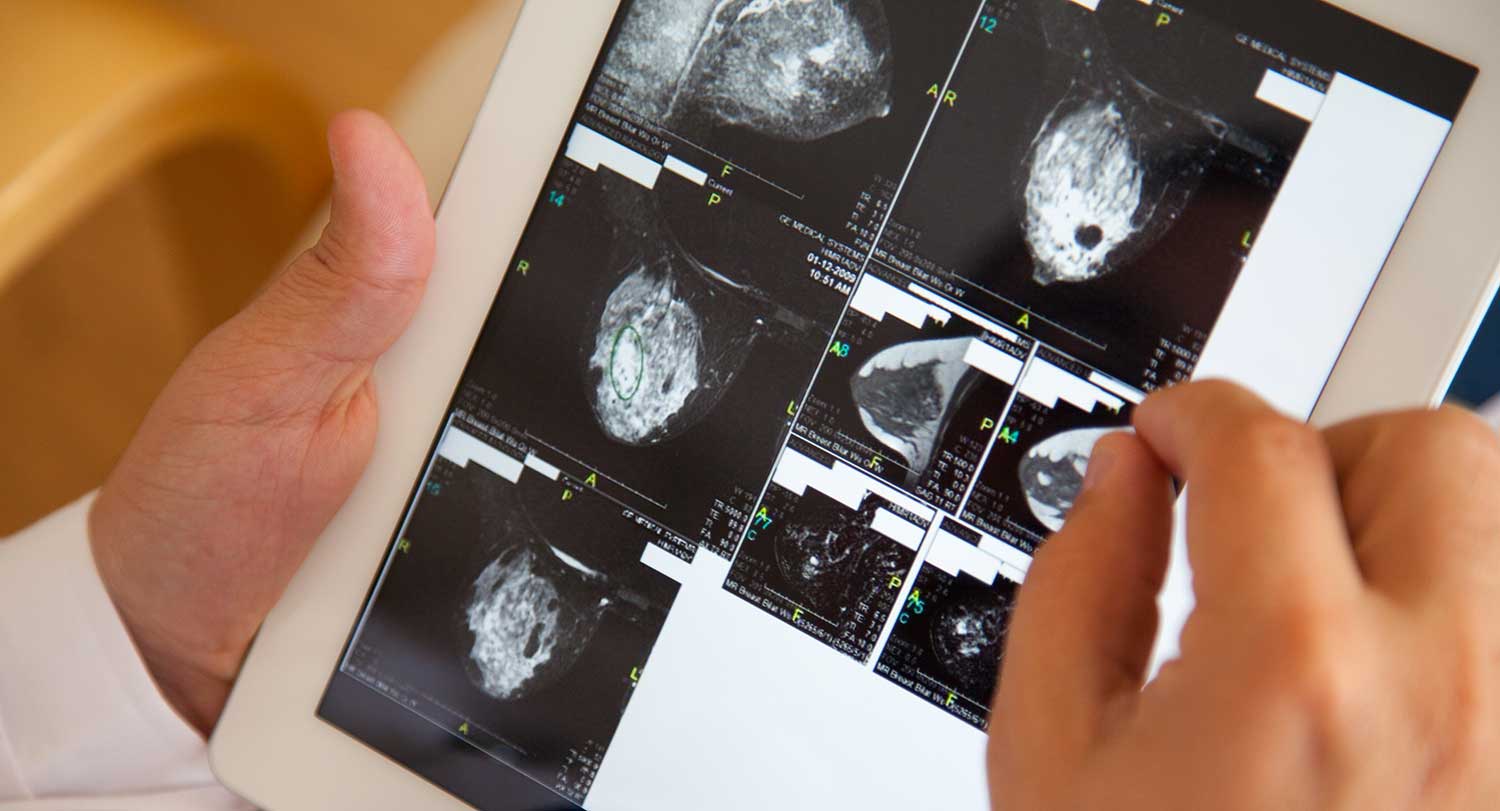
October is National Breast Cancer Awareness Month. Breast cancer is the second most common cancer among American women, according to the Centers for Disease Control.
- It is the second leading cause of cancer death among U.S. women, behind lung cancer.
- For non-Hispanic Black women and Hispanic women, breast cancer is the leading cause of cancer death.
The University of South Carolina has many faculty members who can offer expertise on this subject. To coordinate an interview, contact the staff members listed below.
Pharmaceutical research for breast cancer treatment
Eugenia Broude, a professor in the College of Pharmacy, studies the effects of anticancer drugs on
lab-grown mammalian tumor cells to aid in discovery of new drug targets and improve
the efficacy of current cancer treatments. She can discuss breast cancer targeted
therapy and the effects of anticancer drugs.
News contact: Margaret Gregory, mar24@mailbox.sc.edu, 803-760-0255.
Karen Wickersham is an Associate Professor and Interim Assistant Dean for Research at the University
of South Carolina, College of Nursing. She can discuss health disparities, breast
cancer care, cancer survivorship, symptom management, and medication adherence. She
is a core faculty member of the Cancer Survivorship Research Center, a Co-Investigator
of the South Carolina Cancer Prevention and Control Research Network, and the current
Chair of the Board for the South Carolina Cancer Alliance. Her research focuses on
adherence to and management of side effects of tyrosine kinase inhibitors to improve
quality of life for individuals with advanced cancer who experience disparities in
cancer care (e.g., race, age, rurality).
News contact: Nicole Meares, nmeares@sc.edu, 803-777-9147.
Disparities in breast cancer prevention, screening, treatment
Tisha Felder is a behavioral scientist and Associate Professor in the Department of Biobehavioral
Health and Nursing Science at the University of South Carolina College of Nursing.
Her research focuses on racial and socioeconomic disparities in breastfeeding and
breast cancer outcomes among Black women. She is available to discuss racial disparities
in breast cancer diagnoses and outcomes, breastfeeding and breast cancer reduction,
and the unique experiences of Black women diagnosed with triple-negative breast cancers.
News contact: Nicole Meares, nmeares@sc.edu, 803-777-9147.
Jewel Scott, an assistant nursing professor, studies the impacts of the social environment on the
health of young adult Black women. Her research focuses on cardiovascular-related
pregnancy complications, chronic stress, and depressive symptoms as risk factors for
heart disease. She can discuss preventative care for reproductive-age women, social
determinants of health in SC, and health equity for female minority populations.
News contact: Nicole Meares, nmeares@sc.edu, 803-777-9147.
Breast cancer and the immune system
Daping Fan is a professor of Cell Biology and Anatomy at the School of Medicine Columbia. His research focuses on understanding the role of immune system in health and diseases, particularly breast cancer, and developing novel strategies to harness the host immune system for the treatment of triple-negative breast cancer. Triple-negative breast cancer is the deadliest type of breast cancer and accounts for 10% to 15% of all breast cancer cases and tends to be more common than other types of breast cancer in women younger than 40 who are Black. The goal of the research in his laboratory is to develop a multiphase treatment regimen to reduce metastatic recurrence of triple-negative breast cancer and improve the quality of life for patients.
News contact: Emily Miles, emily.miles@uscmedia.sc.edu, 803-727-3284.
Angela Murphy is a professor of pathology, microbiology and immunology at the School of Medicine
Columbia. Her research examines the impact of diet (natural products and dietary patterns)
on breast cancer in animal models. She is also interested in the role of macrophages
(cells that directly fight infection) in driving the formation of tumors in the breast
and has contributed to the literature on the impact of surgery on breast tumor growth
and metastasis.
News contact: Emily Miles, emily.miles@uscmedia.sc.edu, 803-727-3284.
Breast cancer rehabilitation
Shana Harrington, physical therapy program director and researcher in the Arnold School of Public Health’s Department of Exercise Science, conducts research on impairments in upper body range of motion, strength and function in women diagnosed with breast cancer. These problems may be caused by the cancer itself or treatments related to breast cancer such as surgery, radiation and chemotherapy. Harrington can discuss ways to help prevent or minimize these impairments and how to create rehabilitation protocols that may improve function and quality of life.
News contact: Erin Bluvas, bluvase@c.edu, 843-302-1681.
Ciaran Fairman, an assistant professor of Exercise Science in the Arnold School of Public Health,
examines the impact of exercise, nutrition and supplementation interventions during
and after cancer treatments. He can talk about efforts to prevent or reduce side effects
in cancer treatments. His research areas include the manipulation of dose, frequency,
volume or intensity of exercise to optimize clinically relevant outcomes in cancer
patients; nutrition to augment training adaptations; and tumor biology. He is the
director of the Exercise Oncology Lab and a core faculty member with the Cancer Prevention
and Control Program.
News contact: Erin Bluvas, bluvase@c.edu, 843-302-1681.
Why it matters
How common is breast cancer?
- Breast cancer is the most common cancer diagnosed among women in the U.S. Each year, about 30% of all newly diagnosed cancers in women are breast cancer.
- In 2024, approximately 310,720 women will be diagnosed with invasive breast cancer, 16% of which will be in women younger than 50 years of age.
- About 66% of breast cancer cases are diagnosed at a localized stage — before cancer has spread outside of the breast — when treatments tend to work better.
- There are more than 4 million women with a history of breast cancer in the U.S. This includes women currently being treated and women who have finished treatment.
- Less than 1% of all breast cancers occur in men.
Source: breastcancer.org